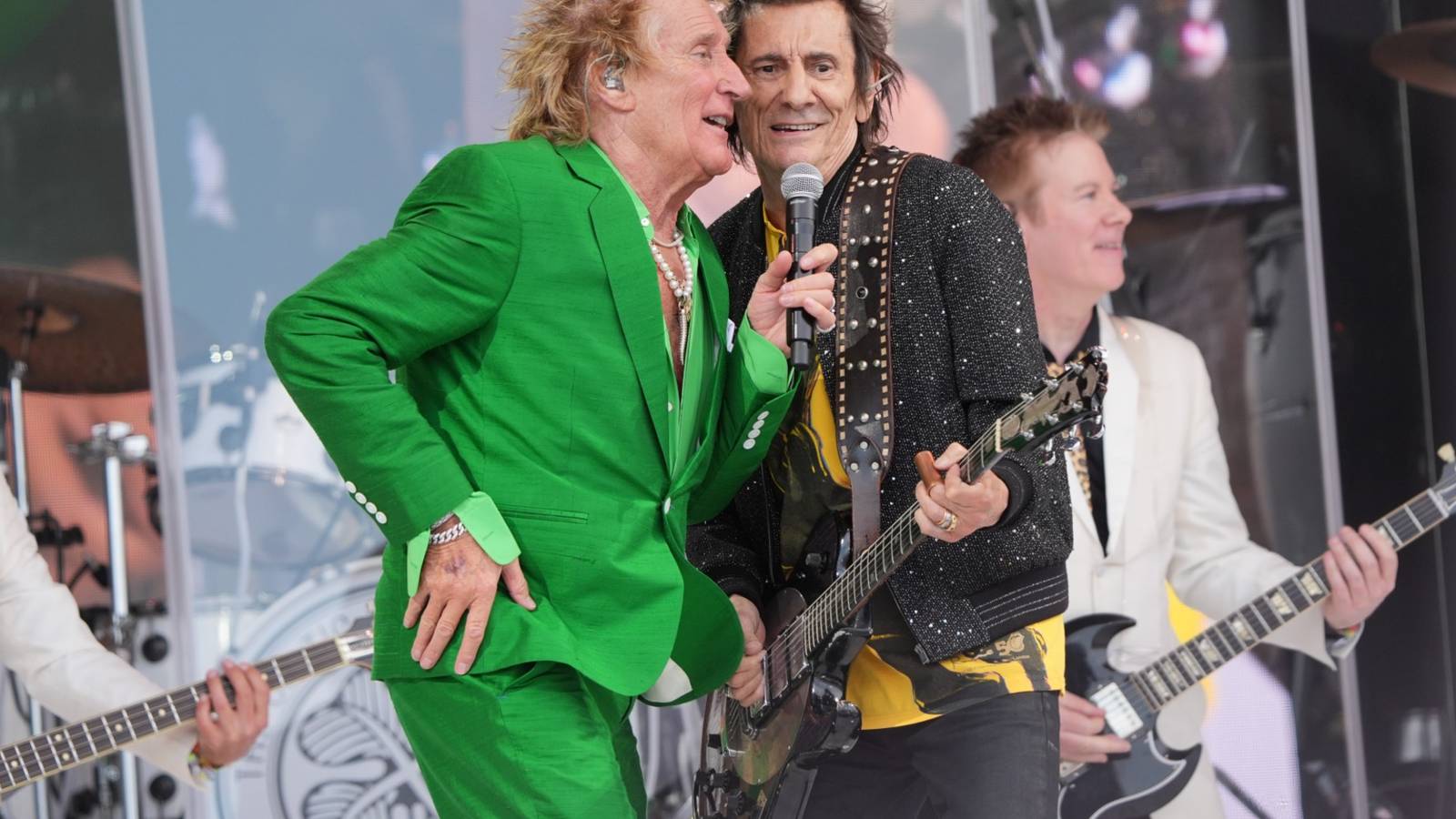
The music and overall history of classic rock often seem to be attached to strange or unexpected occurrences. There are fistfights that happen by oddly random chance, songs with accidental, karaoke-related “curses,” and the genre swerves from artists and bands that (at least at one point) nobody saw coming or knew would ultimately happen.
One of those notable shifts came from the English singer-songwriter Rod Stewartwho was known early on for his raspy, blues-rock brand of singingespecially after being a part of the Jeff Beck Group from 1967-1969. While Stewart decided to pursue a solo career in 1969 (dropping an album with a more varied sound template), he also joined another band.
When The Faces Stopped Going Small
The Small Faces were an English rock group formed in 1965 that also had a change of heart in 1969 after losing singer/guitarist Steve Marriott to the band Humble Pie. Future Rolling Stones guitarist Ronnie Wood was hired to replace Marriott, and Stewart (who’d worked with Wood in the now-defunct Jeff Beck Group) followed him to become the band’s singer.
With Wood and Stewart joining the existing Small Faces band members (bassist Ronnie Lane, keyboardist Ian McLagan, and drummer Kenney Jones), the Small Faces became simply the Faces. Their debut album First Step arrived in 1970, with a raw yet talented sense of promise. However, several issues emerged for the Faces rather quickly.
The Decline And Desertion Of The Faces
One of the earliest problems for the Faces was Rod Stewart’s simultaneous solo success. By 1971, the song “Maggie May” was his first major hit, as well as the LP it was on (Every Picture Tells A Story). This led to resentment from other Faces members, who accused Stewart of keeping his best songs for himself (an allegation he denies).
Lane grew disillusioned with his role in the band compared to Stewart’s (and Stewart’s creative partnership with close friend Wood), leading to Lane’s departure in 1973 just after what would turn out to be the Faces’ fourth (and final) studio album, entitled Ooh La La. Despite replacing Lane and continuing to tour, the ice was getting thin for the Faces.
With Stewart’s fame only continuing to rise and overshadow the Faces, the last straw was when Ronnie Wood was recruited to play guitar with the Rolling Stones in 1975. Despite accepting (which caused existing rifts to accelerate in the Faces), Wood briefly attempted to play live for both bands that year, but ultimately chose the Stones.
With the Faces finished more of their tour (five decades ago this year), Wood’s defection led to them calling it quits before 1975 was over. Despite Stewart and Wood rising to their own iconic levels of fame (and a Rock and Roll Hall of Fame nod for the Faces), one wonders what might have been had the Faces stayed together.